What I Read In 2017
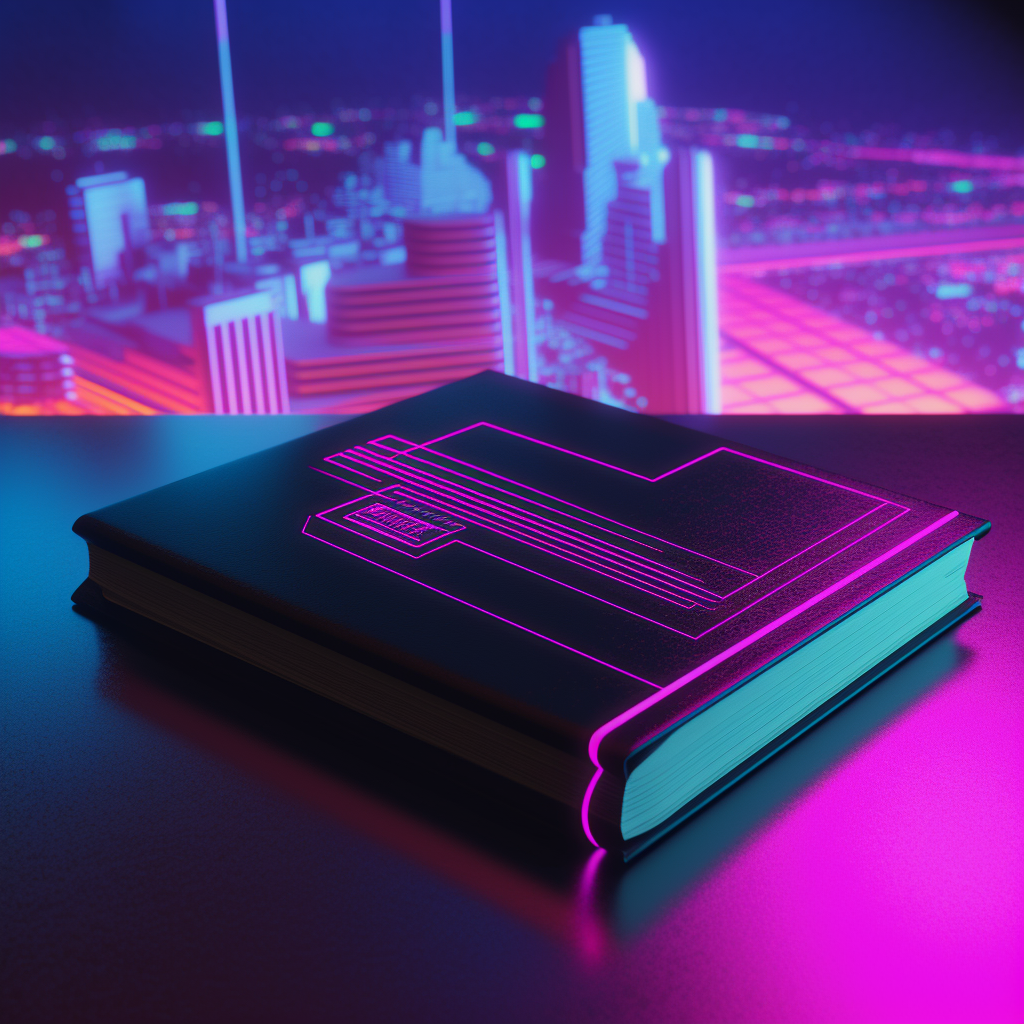
What we read is in many ways what we think, which is why I am excited to share a list of the books I read in 2017. While my reading spanned what I characterize as fourteen different genres, the vast majority of what I read was written by white men, published over the last two years. I split roughly 60:40 Nonfiction to Fiction, which ideally would have gone heavier in the nonfiction direction.
Before I list my 2017 books in the order that I read them, I want to highlight a few for special note.
Best Book: When Breath Becomes Air
Best Nonfiction: American Kingpin
Best Fiction: Seveneves
Honorable Mentions: Life 3.0, Black Flags: The Rise of ISIS, The Selfish Gene, The New New Thing, Dune

Algorithms to Live By: The Computer Science of Human Decisions; Brian Christian and Tom Griffiths — This is a very cool discussion of how some of the most important algorithms in computer science can be applied to our day to day lives. The most interesting idea is the notion of what constitutes a hard problem to solve and more importantly what should you do when you encounter an impossibly hard problem.

Against Football: One Fan’s Reluctant Manifesto; Steve Almond — I’m not sure if I’m ready to give up watching the beleaguered Jets or my beloved Wolverines, but Almond definitely goes out and names all of the things that should give me pause as I consume the game. This is a worthwhile quick read if you are looking to learn just how guilty your Sunday guilty pleasure should make you feel.

Grace of Kings; Ken Liu — I got back on the fantasy train after over a year of fasting. As a rule, I tend to like books where swords have back stories. GoK is such a book and is a worthy entry into the fantasy genre. It takes place in a fantastical China. It’s light on magic and heavy on political intrigue, violence, and love. You like Game of Thrones, but are sick of waiting for the false-author, GRRM to finish Winds of Winter? This should hold you over.
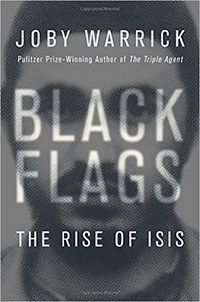
Black Flags: The Rise of ISIS; Joby Warrick — This is the fascinating history of the origins of ISIS. I definitely could not have named Abu Musab al-Zarqawi or Abu Bakr al-Baghdadi at the outset of my read, but now they are names I will not forget. I worry that our discourse makes it very hard to take steps that can prevent the type of terrorism that ISIS perpatrates. I fear that as a country we have lost grasp of our moral compass and lack the clarity necessary to take a real leadership position in opposition of violent jihadism. Finally, I worry that when the next terrorist attack happens our country’s response will be shaped by the constraints of our inadequate discourse rather than the lessons chronicled by Warrick. This is a must read.

The Origins of Political Order: From Prehuman Times to the French Revolution; Francis Fukuyama — This book is a comparative history that explores the roots of the rule of law or lack thereof in various parts of the world. You have to be a real comparative history buff or political science fetishist for the slog to be worth it.
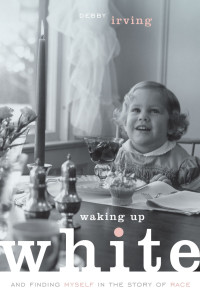
Waking up White, and Finding Myself in the Story of Race; Debby Irving — A close friend recommended this one and it did not disappoint. Irving puts forward a personal and honest account of her journey away from racial ignorance. Definitely worth the time especially for those interested in social justice, but maybe even more important for those of you uninterested in better understanding racial dynamics in our country.
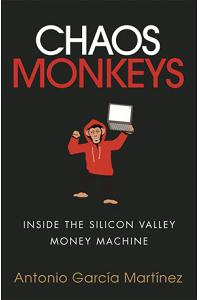
**Chaos Monkeys: Obscene Fortune and Random Failure in Silicon Valley; **Antonio Garcia Martinez — Martinez puts together a Michael Lewis-esque exploration of the Silicon Valley startup scene in the mid 2000s. The subject matter — the finances of early stage startups, pre-IPO Facebook, and the birth of realtime online advertising markets — is utterly fascinating. But Martinez, the protagonist of this memoir, is pretty unlikeable. It’s worth the read if you can tolerate Martinez’s revelry in his own rascality, which wore on me at several points throughout the book.
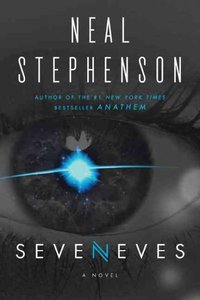
Seveneves: A Novel; Neal Stephenson — This is great science fiction. Neal Stephenson, of Snow Crash glory, writes a novel that takes place in the very near future. The human race discovers it’s existence is threatened by a freak event in space. If you liked The Martian, this book similarly gets deep into the minutia of near-future Nasa technologies and orbital mechanics. Another thing this story has going for it is that the main characters are women, which is rare for the genre. Finally there is a very cool Battlestar Galactica-esque plotline that explores how humans behave in highly stressful existential situations. I don’t want to say more because I really started the book not even having read the back cover. This is a good one for hardcore and casual scifi fans alike.
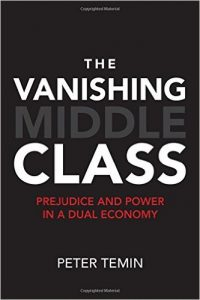
**The Vanishing Middle Class: Prejudice and Power in a Dual Economy; **Peter Termin — Meh. Skip this one and go straight to Piketty.
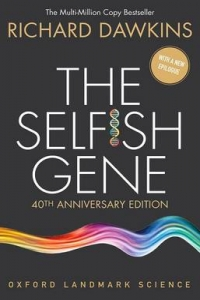
The Selfish Gene; Richard Dawkins — This is a detailed exploration of the theory of Natural Selection. It is also the book that coined the word ‘meme’ back in 1976! Dawkins is an amazing writer and is able to argue persuasively how the fundamental unit of natural selection is the gene. This is definitely worth your time.
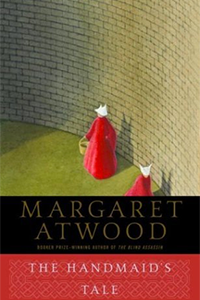
The Handmaid’s Tale; Margaret Atwood — I read this for my company’s book club. It’s a gender dystopia that I’ve been told it is also a TV show now. I also taught this book years ago when that was a thing I did. I actually liked it more on the second read. Yes it is terrifying, yes, you should read it, and no I don’t think Trump makes this book more relevant than it already is.
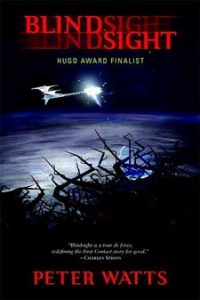
**Blindsight; **Peter Watts — This is a grim piece of scifi. It’s more like Alien than Star Trek, but I think more realistic than Ridley Scott’s work. There is man vs man, man vs self, and man vs environment conflict, but executed with uneven success. It’s definitely worth the look if super dark futuristic fiction is your thing.
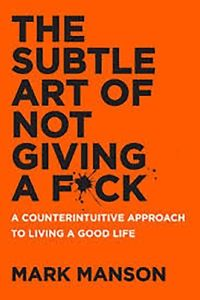
The Subtle Art of Not Giving A F*CK; Mark Manson — This is a self help book that seems to be in vogue right now. Big takeaway is to choose the metrics by which you gauge your success and, as the title implies, try to care a lot about only a few really important things. It’s a fine read, but I think I’m just grouchy because it appears that I’ve gotten to the point in my life where I am reading self help books written by people younger than me.
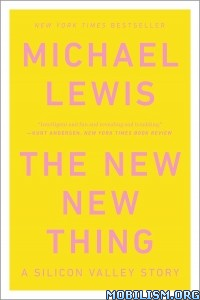
The New New Thing: A Silicon Valley Story; Michael Lewis — What’s not to love about this book? Michael Lewis is a masterful writer. James Clark, who is best known for founding Netscape and having billions of dollars, is a character for the ages. And 1990s Silicon Valley is just an added bonus.
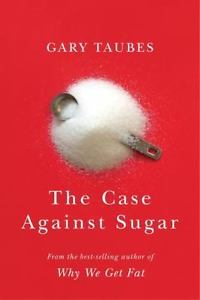
The Case Against Sugar; Gary Taubes — Taubes, a science journalist, makes the argument that sugar can be linked to things like Diabetes, Heart Disease, Obesity, Cancer, Hypertension, and other Western Diseases. He further suggests through a history of nutrition that the sugar industry is part of a Big Tobacco style cover up and misinformation campaign. I buy the argument that not all calories are created equal and I’m going to be rethinking my diet.
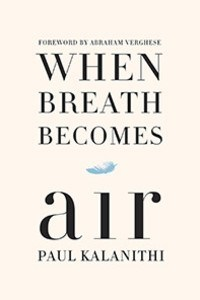
**When Breath Becomes Air; **Paul Kalanithi — This is a powerful memoir about the meaning of death and life told by a promising neurosurgeon whose life was cut short by Cancer right at the start of his medical career. This book is beautifully written and I will carry its lessons with me for many years to come. You must read it.
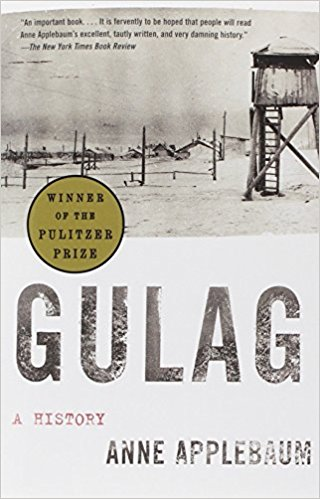
Gulag: A History; Anne Applebaum — Trump said in an interview with a now defunct Fox News personality, “There are a lot of killers. You think our country’s so innocent?” While I know he doesn’t read books, this one might provide him with some much needed perspective. If anyone needs a reminder about the dangers totalitarianism, look no further.
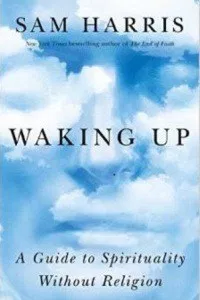
Waking Up: A Guide to Spirituality Without Religion; Sam Harris — This is sort of a long essay on why practicing mindfulness is a good thing. He touches on subjects like consciousness, neuroscience, philosophy, and (my favorite) religious hucksterism. It’s less of a how-to, which I suspect is very hard to do in the written format, and more of a why to. I’m looking forward to Harris’s mindfulness app release.
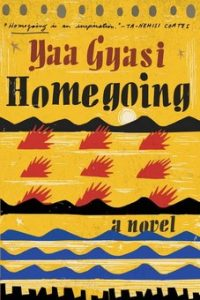
Homegoing: A Novel; Yaa Gyasi — Not a typical read for me, but went with it because of the Ibotta book club. This one is about a family tree starting in the late 1700s in Gold Coast of Africa and making its way to present day United States. Each chapter jumps to the next generation of the family. It really brings home the point that slavery was not that long ago.
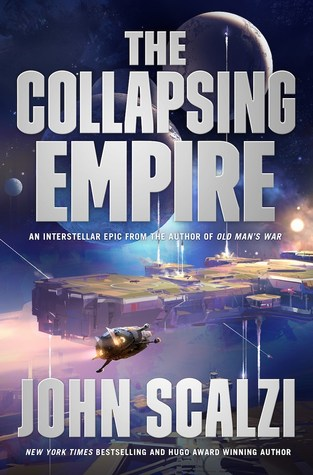
The Collapsing Empire: The Interdependency, Book 1; John Scalzi — It was fine. Maybe I’m getting old, but I think the dialogue could have been less profane. It was fine. I miss Old Man’s War.
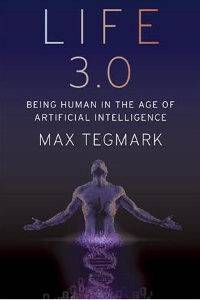
Life 3.0; Max Tegmark — Amazing book not just about the dangers of AI, but about imagining the kind of future we want to bring about. Tegmark’s writing is super approachable without feeling like he is glossing over tough subject matter. Also the prologue describes the hypothetical emergence of general artificial intelligence in the near future and it is the best sci-fi I’ve read this year.
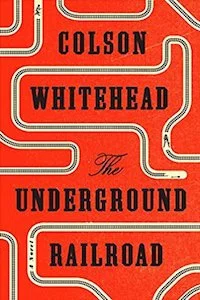
Underground Railroad; Colson Whitehead — This hyper violent historical fiction set in antebellum America employs magical realism to paint a picture of a deeply racist and oppressive America. While sharing many similarities with another book I read this year, Homegoing, — both switch character perspectives and jump between time and place — I found myself more engaged by this book. It was kind of a George RR Martin take on the Underground Railroad — you know American slavery was bad, but I’m going to make that explicit.
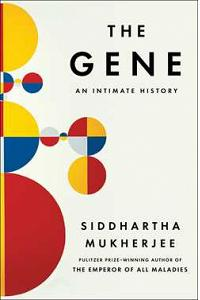
The Gene: An Intimate History; Siddhartha Mukherjee — This is a history of genetic science. It is thorough and if the experimental designs and results that shaped our current understanding of DNA is interesting to you, I recommend this book. For me, it was a bit of a slog. I enjoyed Dawkins’ Selfish Gene that I read earlier this year more than Mukherjee’s work, which heavily cited the former. Nonetheless, impressive work.
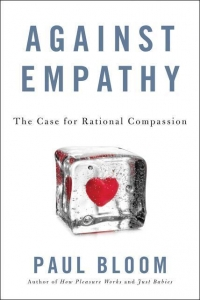
Against Empathy: The Case for Rational Compassion; Paul Bloom — If humans were more rational in how they exercised kindness, and less empathetic in terms of preferencing the near, here and now, over more reason based concerns, the world might be a better place. There I have saved you from having to read this book. You’re welcome. Find the article this book is based on and just read that.
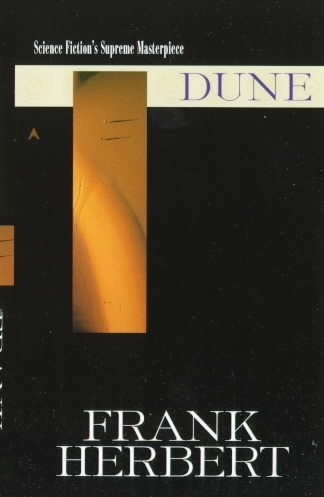
Dune; Frank Herbert — This is my third time reading this cornerstone of the scifi genre, published originally in 1965. I love this book.
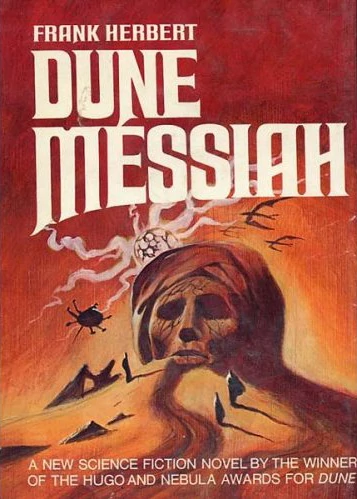
**Dune Messiah; **Frank Herbert — This is my second reading of the sequel to Dune. It’s not as good as Dune, but it’s also much shorter. It’s the thing you need to get through to get back into the good stuff that comes in Children of Dune and God Emperor of Dune.
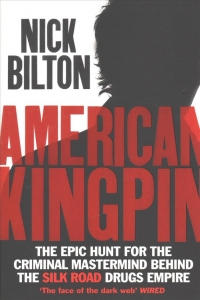
American Kingpin: The Epic Hunt for the Criminal Mastermind Behind the Silk Road; Nick Bilton — An engrossing nonfiction thriller that brings accessible depth to a highly technical story with the plot arc and rich set of characters reminiscent of the best Scorsese crime dramas. I highly recommend this one.
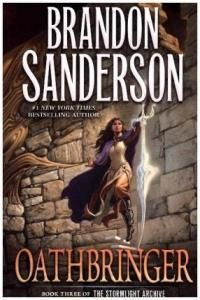
Oathbringer: Book Three of the Stormlight Archive; Brandon Sanderson — A solid entry in this epic fantasy series, which I highly recommend. It is more World of Warcraft in its aesthetic than say Skyrim or Game of Thrones. If Grimdark is how you take your fantasy, this may not be for you, but there are some incredible characters and action scenes. If you like talking swords, demons, heros that can fly, and detailed descriptions of the sounds that various types of weapons make when they clash against plate armor, you might consider reading this book. The climax of this book is well worth the 1200+ page sojourn.

**Annihilation (Southern Reach #1); **Jeff VanderMeer — I read this for my work book club. It’s pretty scary. I haven’t read much suspense / horror, so I’m not sure where this falls in that world but I was definitely freaked out. The book reminds me a lot of late season 1 and early season 2 of Lost. Take it or leave it.
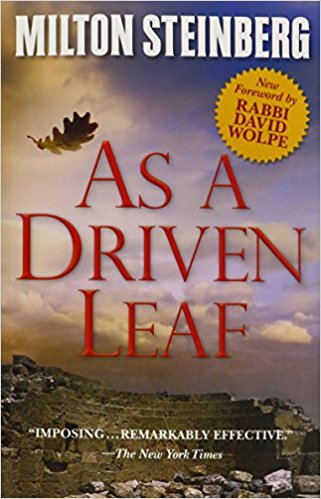
As a Driven Leaf; Milton Steinberg — When your father has dedicated 10+ years to studying the origins of Jewish oral law, you can only wonder. This is a great narrative fiction with historical characters from Talmudic period. The main character, Elisha ben Abuyah (known as ”the other” in the Talmud) struggles with his belief in god and desire to pursue non-religious study and assimilate into Roman culture. A lot rings true today, but I’m still not eager to crack open the Mishnah.
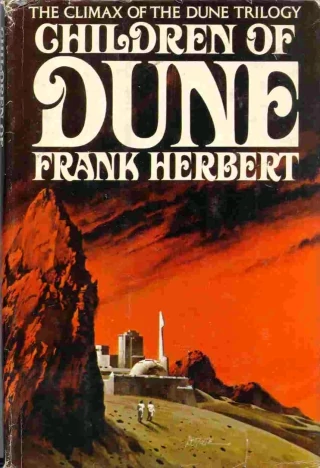
Children of Dune; Frank Herbert — This is my second reading of the third installment in the Dune universe. I think this one is almost as good as Dune, which means it is better than the vast majority of science fiction I’ve read.

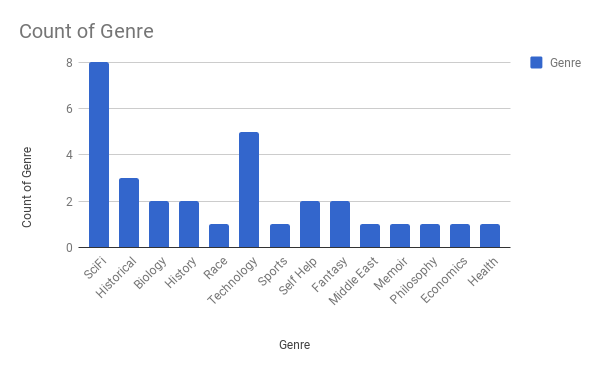
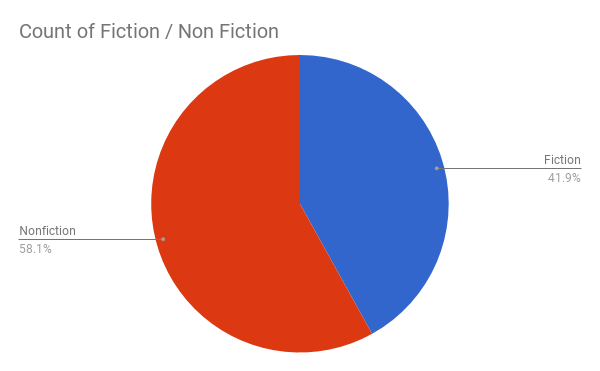
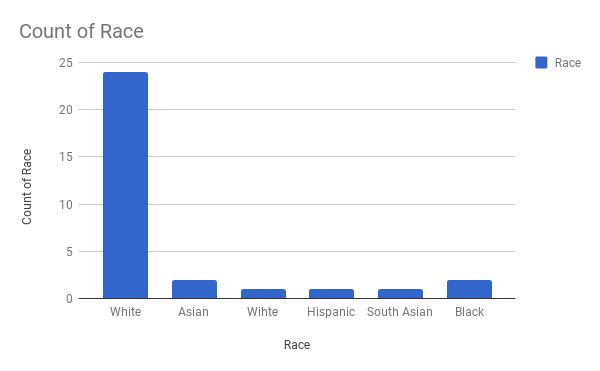

Member discussion